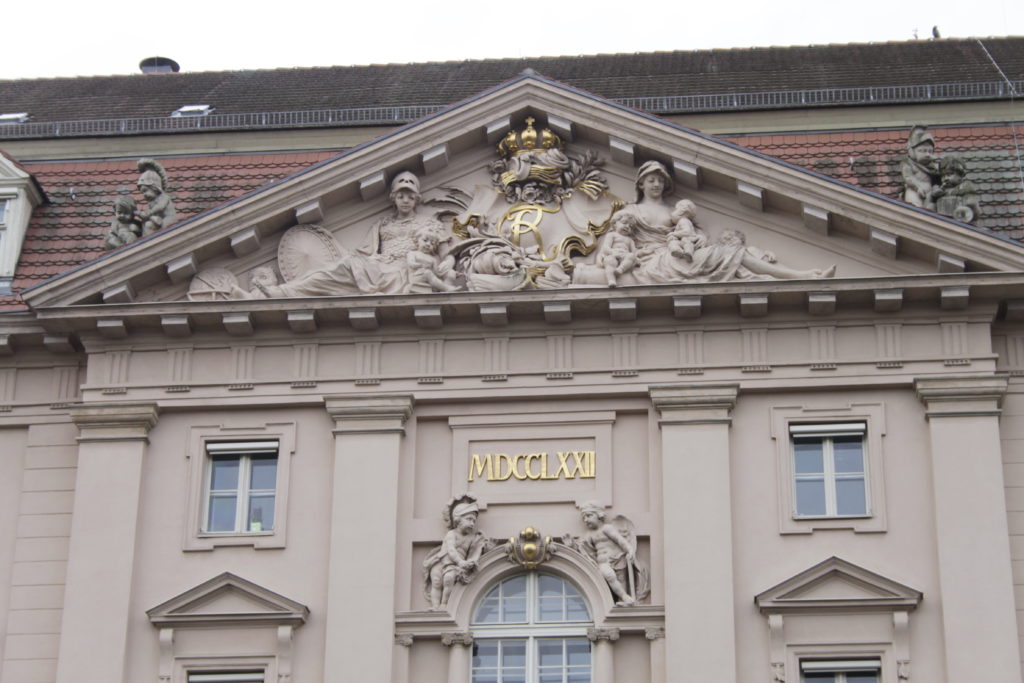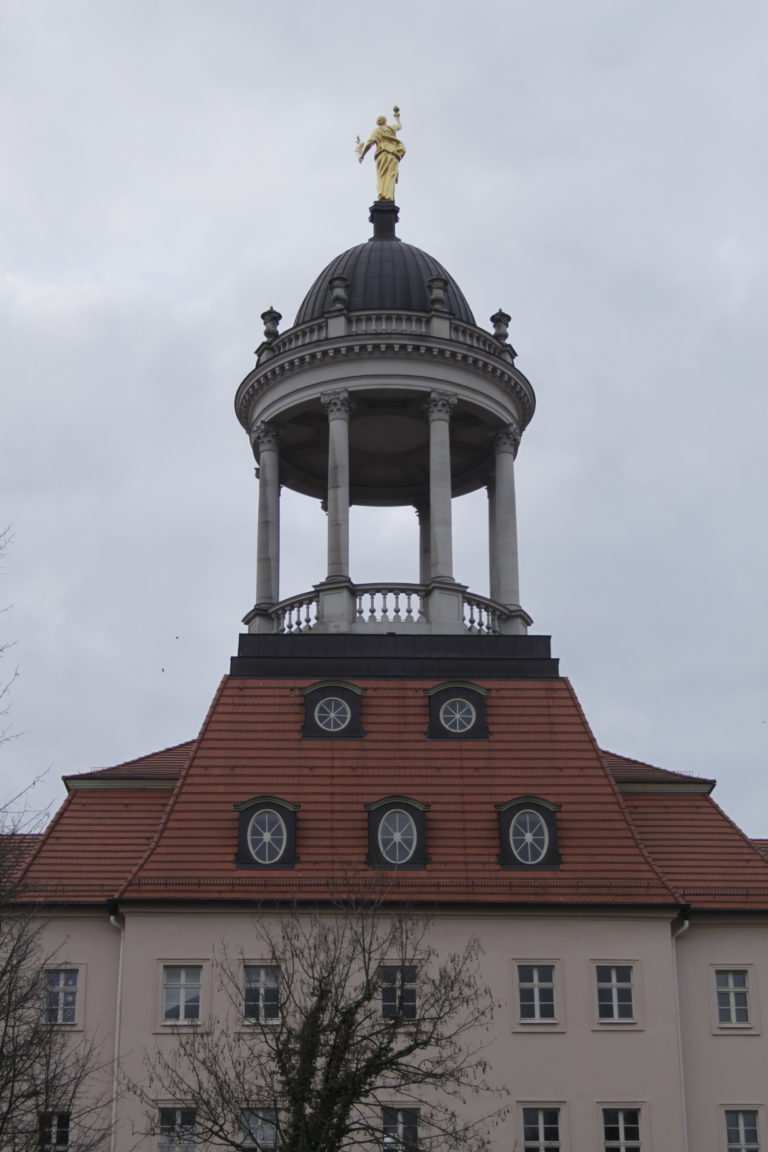The Military Orphanage:
African Musicians in Potsdam

(Photo: Y. LeGall)
This is a byline article by Stephan Theilig.
This is the military orphanage, where a school for military music was established in the 18th century. The history of Prussian military music tells us quite a lot about the conditions of African servants at court.
Before the existence of a Prussian standing army, an important part of mercenary troops was composed of musicians. There were drummers and pipers in the infantry. Trumpet and timpani players were part of higher arms of the service, such as the cavalry. Their role was not like that of a marching band today. They were used to send signals to the battling troops. Friedrich Wilhelm the Great Elector invested in this military corps. Throughout the years, it became integrate part of Brandenburg-Prussia’s standing army.
At the Prussian courts, oboe players and even brass bands also appeared. Their rather simple music punctuated the day, giving information on the clock or the upcoming meals. They were representational tokens of power: the bigger the brass band, and the more luxurious and colorful their outfits were, then the more powerful, wealthy and famous the host was supposed to be.
In this competition for glory, the Great Elector wished his court would be the best. He wanted his musical bands to have exotic tones. Therefore, he appointed Africans as trumpet players, pipers, oboe players or drummers. Other Prussian aristocrats who owned an army followed his example. Besides Berlin and Potsdam, this fashion was also taken up in the French and English armies.
Historical sources give little to no information on the lives of those African soldiers, who remain mostly unknown until now. We know that Brandenburg-Prussia participated in the enslavement of Africans between 1680 and 1717. Besides, records show that European aristocrats also exchanged young Africans from one court to another as if they were goods. Yet, Prussian writers and churchmen did not think that the histories of those human beings were worthy to be recorded. One exception: Ebnu. Originally from West African Guinea. He was baptized in 1681 in Spandau under the name of Georg Adolph Christian. Another one was Ludwig Besemann, who was personally ordered by the Elector to learn the art of drumming. His initial name and origin are however unknown.
Paradoxically, it seems that those musicians ranked high at court. This is revealed in their impeccable uniforms. A piper’s uniform from the time of Frederick I shows that they wore neither a wig, nor powder in their hair. The silver collar or the earring, often seen later on paintings of African servants at court, were apparently not part of the piper’s livery. Oboists, trumpet players and drummers belonged to professional guilds and were entitled to privileges that lower servants and commoners did not have.
The reign of Friedrich Wilhelm I offers more information on Africans musicians. After he was crowned king in 1713, he reduced the scale of his father’s royal court and modifed its structure. He moved Africans musicians out of the court and integrated them to his regiment number 6, commonly known as the “tall guys”. They played the oboe, the flute and the drums in the army band. From then on, even
though they were given the same uniforms as other soldiers, Africans were forced to wear a wide silver collar around their necks and an earring. A turban was added to their outfits. Some of those musicians were reported to be Muslims. The turban would play up this assumpton and make them more visible. Prussian aristocrats used these accessories to construct an orientalist corps that would give an exotic touch to their army.
In Potsdam, thirty Africans were reported to have been musicians in 1724, including fifteen of them as flutists in the royal army. Records of African oboists, flutists or drummers were also found at the neighboring courts, but they weren’t as many as in Potsdam. Because Friedrich Wilhelm I continuously expanded his army, there must have been many trained musicians. In fact, the King created the first
school of military music and oboe in Prussia. It was located here, as part of the military orphanage, its building still stands before you. Africans who had been uprooted from their families were trained here to become oboists, flutists, trumpet players and drummers.
Translation into English by Anna von Rath & Yann LeGall

